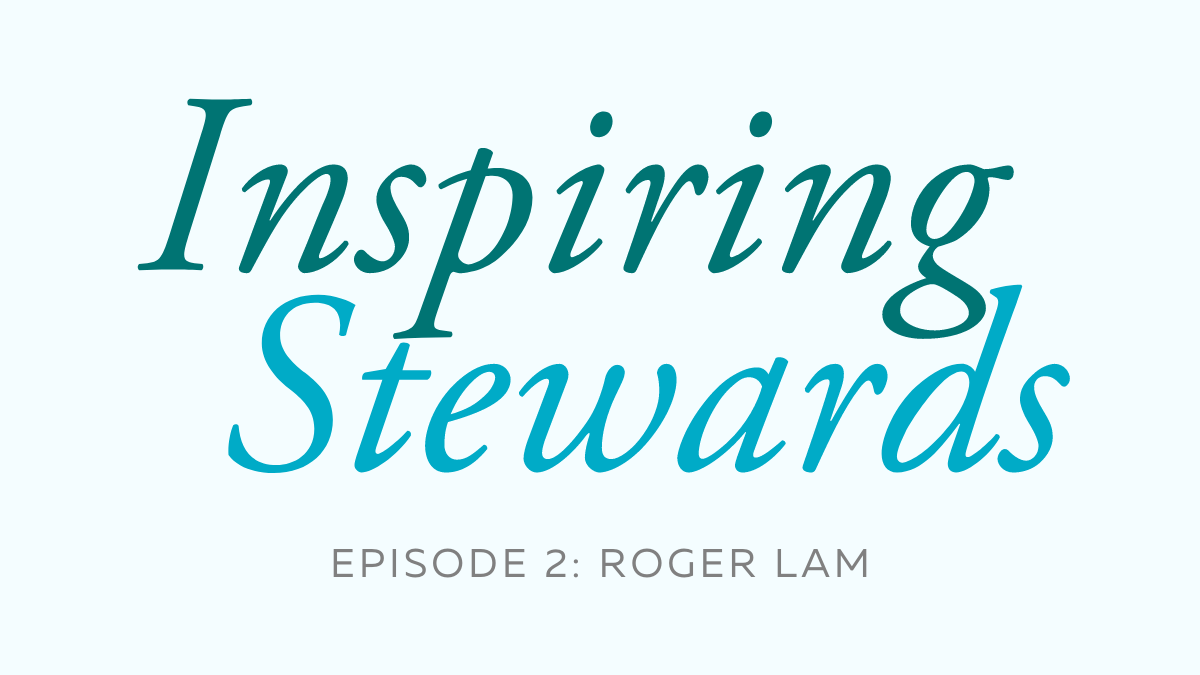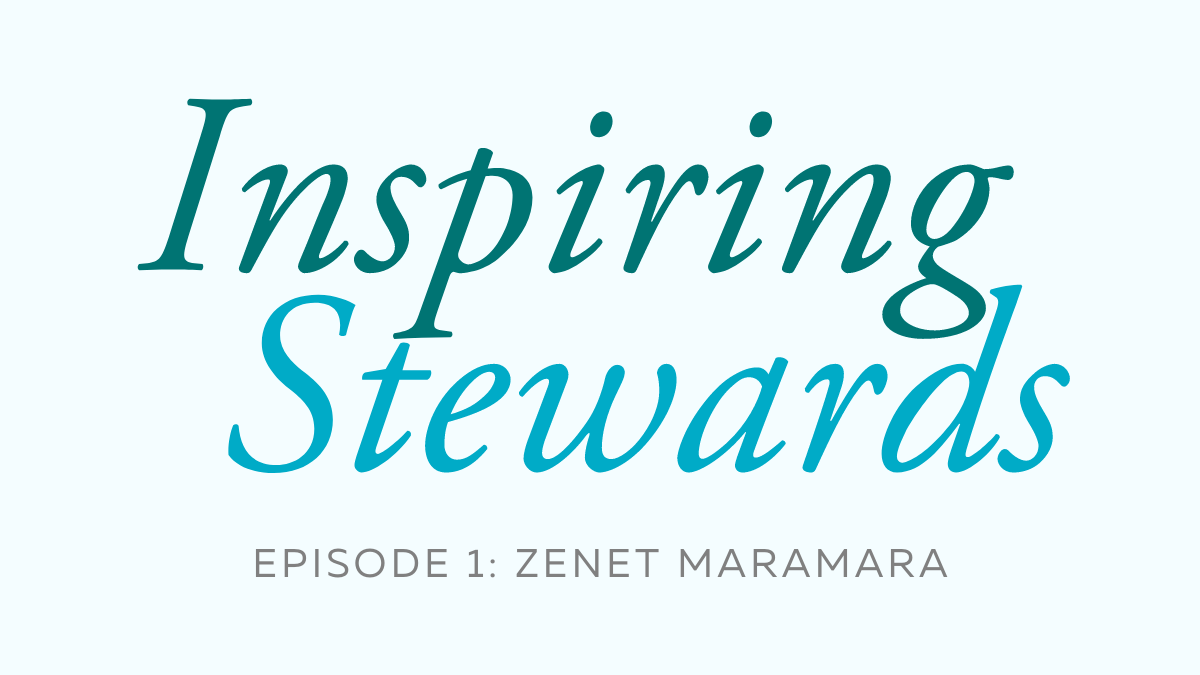
Eurasia September 2021 Field Report
September 28, 2021
Roger Lam – Serving God instead of Mammon
October 24, 2021Growing givers who are generous towards God
ABOUT THIS EPISODE
In this first episode of Inspiring Stewards, Nathan Jones welcomes Zenet Maramara from the Philippines. She speaks about the spiritual journey of understanding her role as a steward doing God’s work. “It became crystal clear that God called me to be his faithful steward… So I dedicated my life to teaching biblical stewardship. And from then on, fundraising to me was a ministry of transforming hearts and minds, and growing givers who are generous towards God.” She also tells us of the strategic work she did to raise local giving and cease dependence on outside funding. She shows us that sustainability is something anyone around the world can achieve and how GTP can help organizations in this area.
We’d love to hear your thoughts, comments, or feedback. To do so, email us at mail@gtp.org.The music is Concerto a’ 4 Violini No 2 by Telemann played on classical guitar by Jon Sayles. Published by Exzel Music Publishing.
Length: 18:08
TRANSCRIPT
NATHAN JONES
Today, we head to the outskirts of Manila, Philippines to spend time with Zenet Maramara who currently serves as the president of the Christian Stewardship Association and has a background in a variety of roles with Asian Theological Seminary.
My name is Nathan Jones and I’ll be serving as your host today in this episode of the Inspiring Stewards podcast.
Zenet, thank you again for taking time to be with us today. This is a pleasure. I've been looking forward to this time with you and I’m expecting God to do some amazing things through this time. So why don’t we just kick it off? Give us a little bit of your life story: where you're from, your family of origin, just a peek into your life.
ZENET MARAMARA
Thank you, Nathan. I was born to a Roman Catholic family and I'm the oldest of 5 siblings. My younger brother is actually my pastor. I am a product of public school. I went to the University of the Philippines for my AB in journalism. There, I was exposed to Campus Crusade for Christ but there was no real conversion. No heart inversion.
After college, I went on my own, lived separately from my family. So I missed out on what was happening in my family. They were starting to be converted to Evangelical Christianity in the late ‘70s. I was hard of heart and I did not only take kindly to their witnessing and sharing of the gospel. So I just went on my own, 10 years in the corporate world, and I felt I was sufficient by my standards. I lived a life of selfish goals and ambitions.
NATHAN
Share with us how you came to Christ and what life was like following that.
ZENET
In 1982, I started my own overseas recruitment business. Since my time was my own – ‘cause I was my own boss – I had time to join the Bible study that was started in my mom's house. After a year of attending that Bible study, I understood the Scripture, and my eyes were opened. You know, I was like the prodigal daughter that was reconciled to the Father.
Nathan, God's calling was sure in my life. I committed my life to Jesus, turned for my wicked ways, and followed Christ. Because it took me a long while to realize that and to redeem the time, I went straight to the seminary in 1984. I graduated with an M.A. in Christian Education and joined Asian Theological Seminary as a staff after I completed my Master of Divinity.
That was part of my discipleship, being at ATS and being exposed to various Christians from different various traditions. I really was not intending to be in full-time Christian ministry. But since I went to ATS to study, I never left until it was time for retirement.
NATHAN
You talk about a second conversion. We hear how God came into your life and led you into a relationship with Christ. You talked about this conversion to stewardship. Share more about that.
ZENET
In 1995, I was studying for my second master’s at Regent University because I wanted to hone my skills in fundraising. I encountered a second conversion and it was in biblical stewardship. Actually, it was Gordon Robertson of 700 Club who knows me from the Philippines. [He] confronted me with the statement that everything belongs to God, including the resources I am raising for my seminary.
You know, that simple statement was a life changer. From then on, I realized that I was a transactional fundraiser. I did not realize that [before]. It became crystal clear that God called me to be his faithful steward and that my personal mission in life is to teach biblical stewardship.
That was also the point when God very clearly showed me what my personal mission is to glorify him. So I dedicated my life to teaching biblical stewardship. From then on, fundraising to me was a ministry of transforming hearts and minds, and growing givers who are generous towards God. I returned to the Philippines a very changed person, a transformed fundraiser if you will.
NATHAN
That’s tremendous. For our listeners, I don’t want to lose sight of that shift that happens. In Scripture, we hear God say that you cannot serve both God and money. For those of us in fundraising, that is such a critical pivot to realize what's happening when fundraising and development [are] happening in the life of an individual, that they’re shifting that over to the lordship and the ownership of Christ. It's a beautiful, beautiful picture. Thank you for sharing.
So can you give us a picture today of what that journey looks like – your vocation, your calling, how God is working through you today?
ZENET
Nathan, fundraising was just the beginning. When I was converted to biblical stewardship, I was a fundraiser for ATS. When I returned from my studies in the US, I set up the communication and development department in ‘99. I had the very specific task of reversing the income ratio from 70% foreign funding and 30% local giving. You know, for many years now, the seminary’s operational budget comes from local support. That's how I started with my stewardship journey as a fundraiser.
Then, later on, it was expanded into being a steward of [an] organization. Now, I like to see myself as a steward of creation. I really also want to focus on creation care as part of my advocacy.
My journey of stewardship was not easy or smooth sailing because I was in a hurry. First thing I did when I was at ATS as development director: I wanted everybody to be on board with me. I felt like I was pulling everybody. Later, I realized that I needed patience and perseverance if there is to be a work of transformation.
There was a point when I quit ATS and I thought I would just serve the bigger body of Christ through the NGO I started: the Christian Stewardship Association. The first two years of CSA was not easy. After I left ATS – you know, without the academic structure that was ATS – I felt I was a free spirit. But you know, the Lord, like a good shepherd, took me back into his fold.
In 2003, ATS hired me back to organize an MBA program for Christian nonprofit leaders and fundraisers. It’s called the MBA in Biblical Stewardship and Christian Management. After returning to ATS in 2003, that's really when the Lord flourished me as a steward. It allowed me to organize several ministries, one of which is the ATS Center for Biblical Stewardship, which after 7 years was expanded to include the ATS continuing studies and extension programs.
I also helped found the Christian Council for Transparency Accountability (CCTA). It later joined GTP as one of the peer accountability groups. Starting the CSA Fundraising Institute in 2008, we offer fundraising certificate courses in partnership with ATS. One of the NGOs I also co-founded is the creation care NGO called Christians in Conservation and it's now an affiliated project of the international A Rocha movement.
NATHAN
That’s fantastic! So before I move into the next question, let me dig in just a little bit. Christian Steward Association – tell us a little bit more about what CSA does and maybe what was the prompting behind starting that, if you don't mind.
ZENET
Oh, I’m a natural networker. So when I came back as a designated and appointed development director, first thing I did, Nathan, was to call all the other seminaries to find out if there are other people like me, a development director, so I can network with them. Lo and behold, there was just one person doing that and her title is not even “development director.” She was just like a public relations person.
Because at that time, there was no training in fundraising in the Philippines. There [were] no books, no teachers. So the Lord put that burden in my heart to start Christian Stewardship Association because I was exposed to CSA in the US and the wonderful things that they were doing. Of course, there's no CSA anymore in the US. They were merged with the Christian Management Association and they’re now called the CLA – Christian Leadership Alliance.
So we were like trailblazing in teaching fundraising in the Philippines. In fact, until now we're the only Christian nonprofit organization teaching fundraising training. We offer seminars, conferences, and the Fundraising Institute where we offer a certificate program.
NATHAN
Wow! Keep it up. Don’t give up. That’s fantastic. So along the lines of what God has been doing to your life, I’d love to hear from your perspective: How are you seeing God at work, whether it’s locally or globally? Where are you seeing him move at this time in history?
ZENET
I think more than ever I can see the movement of God all over the world, particularly in areas like Asia and even Africa. You know, it saddens me that the world calls this a “VUCA” world, a world characterized by vulnerability, uncertainty, complexity, and ambiguity. But that's from the lenses of the world, right?
I think that prompts me more for the need to shout from the housetops that God is in sovereign control. I think throughout history, God has used crisis and chaos to get the attention of his people. You know – in this pandemic – this continuing pandemic should humble us.
I think the problem is we have lost our identity as stewards who are created in the image of God. So I see the need for proficient leaders particularly to surrender anew the false belief that we are in control because we are not. We cannot continue to act as owner leaders but as servant stewards who follow God's bidding.
You know, Christian leaders are entrusted with governance and administration of God’s work. They need to reexamine the theology and practice of what it means to be a biblical steward. That God is the ultimate owner of ministries and organizations. That we need to put our trust that he is the Provider and the Sustainer.
That was my personal experience. When I was not converted to biblical stewardship, I felt that the job of raising the budget – the annual budget – for my seminary was on my shoulders. And then when I realized that it is God who owns everything and that he is therefore also the Provider and the Sustainer, that really lifted that heavy burden on my shoulders. It was liberation for me!
So I’d like to see Christian leaders who see their role as leaders as a trust from God. And that even the organizations that are entrusted to their care is a gift or a trust from God. Therefore, when we say we build God's kingdom, we have to build only one kingdom – his kingdom – and not build a second kingdom for ourselves.
So I think we need to redeem our identity of who we are in relationship with God and how we steward that identity as redeemed people of God created in his image. It is a gift and like all gifts from God, we steward it with faithfulness.
We are created with an intimate relationship with God and we need to go back, I think, to the basics of what we need as human beings. We need to steward those basic relationships with God, with people, with creation, and all the resources in the world.
What is important is we pursue our intimacy with God because that is our first and highest calling. Our work is just secondary compared to our calling to be intimate with God. Surrender everything and all the control because sometimes it's us who put those shackles in ourselves. We really need to free ourselves and become people, stewards, who are free to lead, who have joy.
I think that's really the message that I want to bring out, especially in this time of pandemic. Christian ministries around the globe can profit much from the biblical concept of the steward and how it can inform the practice of good governance, faithful administration, and multiplying stewards.
NATHAN
That’s fantastic! There’s so much there. I feel like we could have a whole series of podcast unpacking the depth there. Zenet, thank you so much for your time sharing your heart, sharing your perspective on how God is at work in the world around us. You know, may God continue to make inroads in that battle for people's hearts that they would release ownership and embrace stewardship. As we wrap up, any final thoughts you would have for us today?
ZENET
I just want to reiterate that Global Trust Partners – where I serve as a board member – we work with local Christian ministries around the world. We work long side indigenous ministries to promote peer accountability, build trust, multiply faithful stewards. So everything you need to know in how to become faithful stewards, administrators, and board members is what Global Trust Partners is about.
We provide free resources on those topics: governance, administration for nonprofit organizations. People can actually download those resources for free from our website: GTP.org.
Thank you very much, Nathan. It's been a joy and a privilege for me to share a little something of what God has done in my life as a steward and what God continues to do.
NATHAN
Thank you, Zenet. Thank you. God bless you.




